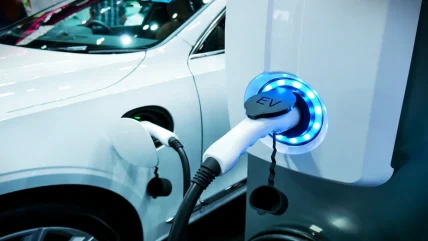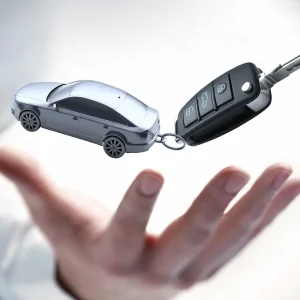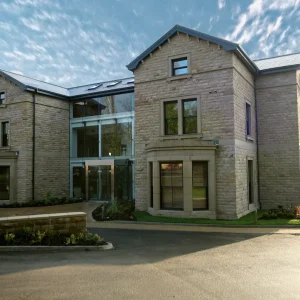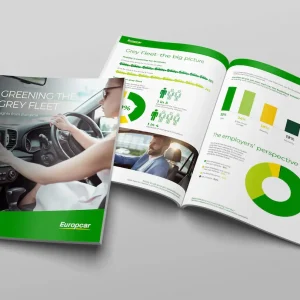
As expected, Kit Wisdom tells us the last year was massive for Tusker, with the purchase of the business by Lloyds Banking Group, but it was also a massive year for new car customer launches and for orders and deliveries.
He says: “Last year saw us deliver the greatest number of vehicles in our company’s history, it was just over 20,000 vehicles, and took our fleet to just under 40,000, by the end of last year.
“We haven’t seen any let up in demand for electric or plug-in hybrid vehicles, with the change in the ICE engine ban. We haven’t really seen a change in trajectory for manufacturers either, so they seem to be very much on course for delivering their emissions targets, with the production of electric vehicles, importing them into the UK market at least.
“We’ve seen more growth, and demand from customers for our salary sacrifice product. That’s continued into this year, the fleet is currently around 43,000 vehicles, as we currently stand. So, that’s continued to grow out of the end of last year and into the first quarter of 2024.
“Our main purpose is to help the UK drive a better car. We do that throughout the salary sacrifice scheme, which is the main focus of the business, and allows people to access electric vehicles in the most tax-efficient way.”
We go on to ask Wisdom how has the business changed since Tusker was acquired by LIoyds Banking Group.
He says: “The group have just supported us to do more of what we do. There are three transport companies within the group now; Blackhorse, Lex Autolease, and now Tusker. With Tusker focussing on salary sacrifice.
“We are collaborating on work within the group, but we are very much still a business in Croxley, with the same team, running to the same goal and purpose. From my perspective, it is good progression for our business.”
Wisdom goes on to tell us that Tusker continues to support its customers on contract hire and daily rental, but their primary focus and the new business focus is around salary sacrifice.
He says: “This allows us to really focus on the salary sacrifice marketplace, our customers, suppliers, and really ensure that we can be the best we can be on delivering salary sacrifice cars to our customers.
“Ultimately, we’re helping our customers and their employees to drive a better car. For me, it keeps things simple, it means we can really deliver on what we say that we’re going to deliver.
“Our goal is to have a fleet of zero-carbon emitting vehicles and electric is the powertrain to deliver that. But we still lease and quote our customers for petrol, diesel, and plug-hybrid salary sacrifice vehicles. Electric accounts for about 85% of our orders. Although we’ve seen a slight increase in plug-in hybrid orders, but there’s no particular reason apart from just our reach is getting a bit broader and reaching those who a few years ago, wouldn’t have considered electric at all.
“In the last 12 months, plug-in hybrids have gone down a BIK bracket, because electric range has increased on newer models. They’re getting between 40 to 69 miles of electric range, taking them into the 8% BIK bracket. So, when you look at this through the salary sacrifice lens specifically, it makes those vehicles more affordable, because there’s more of a saving that can be made.
“However, that’s not to say we’re seeing less interest in electric – as we’re seeing even more in that! It is just, there are slightly more people now that feel that they can afford a plug-in hybrid, because there’s a better tax saving.”
Wisdom tells us one of the benefits of choosing Tusker is that it has 16 years of experience specifically in salary sacrifice.
He says: “We’ve put over 70,000 vehicles on the road since 2008, and as we stand today, we have over 1600 customers, and 1.7 million eligible employees. By focussing on salary sacrifice it allows us to be the best we can be.
“We’ve got an experienced team that are focused on the employer, and the employee. We’re really experienced with the solution, and we have the right tech and specialised systems working with benefit providers, so that our customers and employers, can make the right offer and the right type of vehicle to their employee – so they can see that vehicle in the right way. Plus, we’ve got all the services wrapped around that vehicle, so it really is an inclusive product for a driver and employee to access.”
As far as barriers for fleet moving to EV, Wisdom said it’s about finding the right vehicle for the right driver. “We perform a ‘Driver’s Survey’ every year, and whilst there might be a perception in the media that you can’t charge an EV, or that an electric vehicle should be charged all the time, our drivers tell us, on average, that they charge their vehicles once a fortnight!
“It is about perceptions – and there’s an awful lot of negative press around electric vehicles in the consumer press. So, we need to myth bust some of these pieces – there is plenty of misinformation out there.
“Once you’ve sold a salary scheme to the customer, and they say it’s now going to be part of their benefits package, we then work to find the right vehicle for the driver. When drivers see the price, and the cost-savings that can be made for an electric, or plug-in vehicle, as the amount includes insurance, servicing, tyres, accident management, breakdown, and all the other things that they would have to go out and buy – it’s so cost-effective! So, we don’t necessarily see a lot of barriers from customers – we’re enabling that move into electric vehicles. This is testament to the 85% of orders that are battery-electric vehicles, and are up and down the country, either at a local council, or local NHS trust, as we service a lot of public service clients, SMEs, or large corporates.
“This isn’t exclusive to one particular area, or one particular demographic of the community, or our country, this is up and down the country.”
Wisdom tells us that Tusker’s and his main focus for this year is to carry on being the best SalSac provider that they can be.
He says: “We’re focusing on new customer launches, and our existing driver base. There are definitely some new things coming in the pipeline, that we’d like to talk about in two, to three months, as they’re not quite there yet. They’re all in the sal-sac space, as that’s our focal area.”





